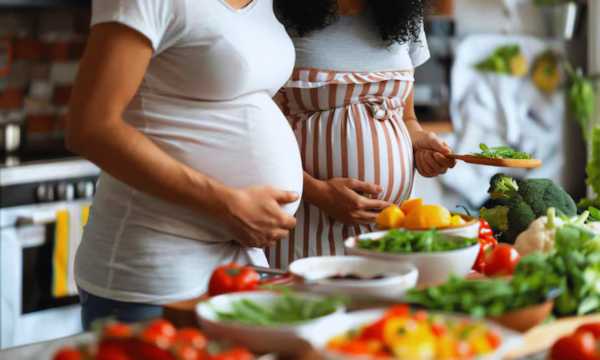Discovering that you might be pregnant is one of the most exciting moments. But how do you recognize the early pregnancy symptoms?
Ad
If your period is late and you are looking for information about the first symptoms of pregnancy, you are in the right place! Understanding what is happening to your body is crucial at this special time.
I’m here to help you navigate this phase with confidence and knowledge, alleviating doubts and anxieties.
Ad
Menstrual delays can have various causes, but for many women, the first suspicion is pregnancy.
Recognizing the early pregnancy symptoms can make all the difference, allowing you to take the necessary steps and prepare for the next stages.
Ad
In this post, we will cover everything you need to know about the early pregnancy symptoms, from the most common to the lesser-known ones.
Let’s uncover the signs your body might be giving, so you can feel more secure and informed. Let’s go!
Understanding the Female Body
Before diving into the early pregnancy symptoms, it is important to understand how the female body works.
The menstrual cycle, which usually lasts about 28 days, is divided into phases: menstruation, ovulation, and the luteal phase. During menstruation, the body sheds the uterine lining from the previous cycle. As the cycle progresses, hormone levels increase, preparing the body for ovulation.
During ovulation, an egg is released from the ovary and is ready to be fertilized by a sperm. If fertilization occurs, the egg travels through the fallopian tubes to the uterus, where it implants in the uterine lining, starting the pregnancy.
From this moment, a new family member will join! If fertilization does not occur, the cycle restarts with menstruation.
Initial symptoms: Recognizing the change
The first signs of pregnancy vary from woman to woman, but some are more common than others. One of the most well-known symptoms is a delayed period.
If your menstrual cycle is regular and you notice a delay, it could be a sign that you are pregnant. Other symptoms include:
- Nausea and vomiting: Hormonal changes that accompany pregnancy can cause nausea and vomiting, especially in the morning. This symptom usually appears between the 6th and 8th week of pregnancy and tends to decrease in the second trimester.
- Breast sensitivity: The breasts may become sore, swollen, and even have more visible veins.
- Excessive fatigue: Fatigue is a common symptom in early pregnancy, especially in the first weeks. This is due to the increased production of progesterone, a hormone that induces sleep.
- Appetite changes: Some pregnant women feel hungrier, while others may have aversions to certain foods.
- Frequent urination: The need to urinate more often can be an early sign of pregnancy, as the growing uterus presses on the bladder.
- Mood swings: Mood swings are common during pregnancy due to hormonal changes and the emotional impact of pregnancy.
- Feeling bloated: Abdominal bloating can appear in the first weeks due to fluid retention and the growing uterus.
Less common symptoms
Besides the symptoms mentioned above, some women may experience other less common signs of pregnancy. Check out below what they are:
- Back pain: Some women report back pain, similar to menstrual cramps, as one of the initial pregnancy symptoms.
- Dizziness and fainting: Changes in blood pressure and blood flow can cause dizziness and fainting in some pregnant women.
- Food cravings: In some cases, pregnant women develop strange food cravings or an aversion to certain foods during pregnancy.
- Ringing in the ears: Ringing in the ears can be a pregnancy symptom, usually related to circulatory changes.
When to see a doctor
If you are experiencing some of these symptoms and suspect you might be pregnant, it is important to see a doctor to confirm the pregnancy. They can confirm it through clinical and laboratory tests, such as a beta-HCG test in the blood or urine.
How to interpret pregnancy test results
Pregnancy tests are a quick and easy way to confirm if you are pregnant or not. They are available at pharmacies and can be done at home.
Pregnancy tests work by detecting the presence of the hormone hCG (human chorionic gonadotropin) in the urine. If the test is positive, it is highly likely that you are expecting a baby.
However, if it is negative and you still suspect you are pregnant, it is recommended to repeat the test a few days later or consult a doctor for a more accurate examination.
Conclusion
Understanding the early pregnancy symptoms is the first step towards a healthy and happy journey to motherhood. Remember that each woman is unique and may experience different symptoms at different times.
If you suspect you are pregnant, be sure to seek medical a healthcare professional can provide the necessary guidance, confirm your pregnancy, and ensure you receive the right prenatal care from the start.
Early medical attention helps monitor your health and your baby’s development, giving you peace of mind throughout this life-changing experience.
Embracing this journey with knowledge and preparation allows you to navigate pregnancy with confidence. Stay informed, listen to your body, and seek support when needed to make this special phase as smooth and joyful as possible.




